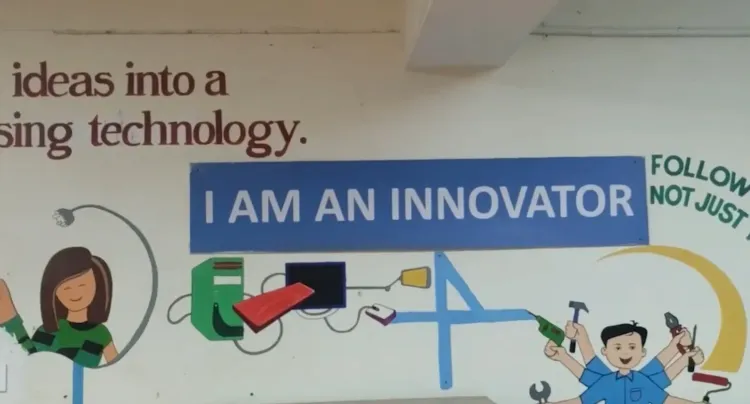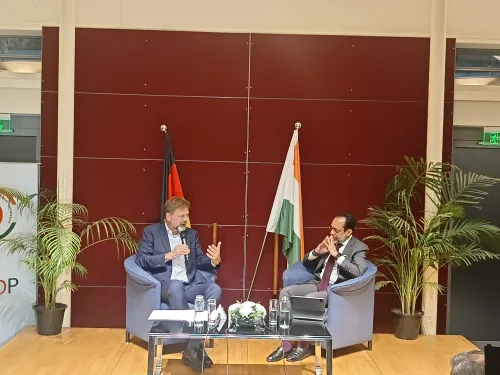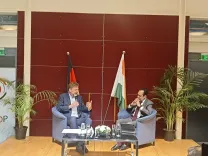What Impact Did Gujarat's 'Mega Tinkering Day' Have on Students?

Synopsis
Key Takeaways
- Over 10,000 Atal Tinkering Labs participated nationwide.
- 450,000 students engaged in hands-on projects.
- Focus on practical education enhances global competitiveness.
- DIY projects foster teamwork and problem-solving skills.
- Innovation programs are vital for India's technological advancement.
Gandhinagar, Aug 12 (NationPress) The NITI Aayog hosted a nationwide 'Mega Tinkering Day' on Tuesday, marking the largest school-based tinkering initiative to date. This event united students from more than 10,000 Atal Tinkering Labs (ATLs) across all 35 states and Union Territories.
In Gandhinagar, Gujarat, the event ignited a surge of innovation among students and educators alike, as students showcased their creativity and problem-solving abilities through DIY (Do-It-Yourself) projects.
The primary aim of this initiative was to encourage practical education at the school level, equipping the youth to be competitive on a global scale.
Participants in this nationwide program expressed that they acquired numerous new technical and creative skills.
“I worked with sensors and microcontrollers for the first time, which helped me learn to create prototypes,” one student recounted.
Educators noted that events like these cultivate technical and innovative skills among students.
A teacher commented, “Through DIY projects, children develop essential qualities such as teamwork, problem-solving, and leadership. These skills will prepare them for future careers.”
He further noted that the new education policy, combined with ATL, is transforming education to be more practical, enabling students to tackle real-world challenges alongside their academic studies.
Students also remarked that hands-on projects in schools are setting Indian youth up for success on the global stage.
One student stated, "These projects encouraged us to think independently and innovate, preparing us to tackle future challenges."
According to teachers, innovation-focused programs could significantly contribute to positioning India among technologically advanced nations. They advocated for increased practical exposure in schools and partnerships between educational institutions and industries to further bolster the technology sector in the future.
Students reported that their perspectives have shifted after engaging with ATL Tinkering Labs, allowing them to approach problems from a more scientific angle.
Remarkably, this nationwide event witnessed over 10,000 Atal Tinkering Labs participating in a synchronized hour of creativity, with millions of students across India engaging in building, learning, and innovating together.
Held virtually and simultaneously across schools, the event engaged over 450,000 students from more than 9,000 schools equipped with Atal Tinkering Labs. No other nation has achieved such a massive mobilization of innovation within its educational framework.










